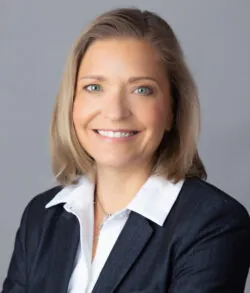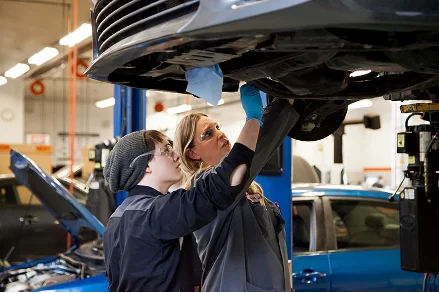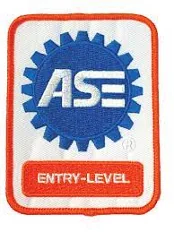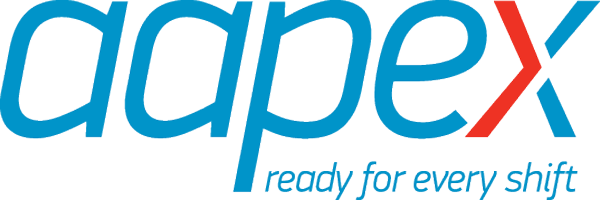Networking to Fill Your Entry-Level Positions
Wednesday, October 18, 2023
Networking to Fill Your Entry-Level Positions

By Donna Wagner, VP Industry & Media Relations, ASE
One of the great things about AAPEX is the opportunity to go home smarter. I’ve participated on various industry committees and presented to many groups throughout my career. My focus in these situations has always been, what can we do to help companies in the automotive industry improve retention and increase business?
That brings us to my AAPEX workshop, “Fill Your Pipeline of Entry-Level Employees by Engaging Local Students,” on Oct. 31, from noon to 1:30 p.m., The Venetian Expo, Level 1, Rooms 401-407. The technician shortage continues to loom. While hiring a highly experienced technician is every shop’s dream, those techs are in high demand. Growing your own is your best option.
“How We Got Here”
Having spent my career in the automotive industry, I’ve developed a vast network of really incredibly smart professionals. As I got to know people, we would inevitably talk about “how we got here.” Many don’t realize the tremendous opportunities that the automotive industry has to offer. Whether you’re a technician, parts specialist, distributor, parts manufacturer – there is not one common path. However, a common thread for many was a high school automotive class.

Industry’s Best Kept Resource
High school automotive classes are the industry’s best kept secret resource. ASE estimates 125,000 students are in automotive, collision and truck programs nationally. Students in these classes have a passion for automotive but they have no idea how many opportunities are waiting for them.
This is OUR opportunity. As taxpayers, we have a vested interest in automotive classes not only surviving but thriving. Get involved and get to know the students. Our industry is built on relationships, and it starts in the high school classroom. I can’t think of a better place to spend your time.
ASE Accredited Automotive Programs

Just as ASE has become the industry standard for technicians, it is also the standard for automotive, collision and truck programs at the high school and college levels. Standards are reviewed and updated by industry professionals. Benefits to employers include:
- Students are trained by ASE Certified instructors who receive a minimum of 20 hours of technical update training each year
- Programs have an advisory committee made of local employers that ensures students learn skills important to local employers
- Programs have the tools and equipment necessary to teach the skills required for success
- Opportunity to fill your pipeline with entry-level techs and help them develop good work habits.
But My Shop Doesn’t Require ASE Certifications
That disappoints us. However, ASE certifications and ASE accreditations are two completely different credentials.
- Programs are accredited. Accreditation confirms a baseline of skills taught to students.
- Individuals are certified. Certifications show that an individual has the knowledge and experience in a technical area.
You want an ASE accredited program for the reasons listed in the above section. It ensures that the program is not a hobby shop working on small engines or that they are learning outdated skills.
How Do I Know What a High School Graduate Knows?

While the image of trade programs has improved, many schools still put problem students into automotive classes. A differentiator is the ASE Entry-Level certification. Entry-Level certifications are similar to ASE professional certifications which indicate knowledge in a specific technical area but differs in that they do not require experience.
Last year 50,000 students took at least one ASE Entry-Level certification. As you are getting to know students in your local accredited program, ask what ASE certifications they have earned. This is a starting point for you to provide students with the experience to support the knowledge gained through their coursework.
Want to know more?
Join me at AAPEX, Oct. 31 at noon local time. My workshop will give you resources to connect with your local school, outline a plan to develop relationships with the local instructor and students and tips for how to best engage students. These tips work for entry-level service professionals as well as other entry-level positions you need to fill.
See you in Vegas!
Donna Wagner, VP Industry & Media Relations, ASE. Donna’s automotive career spans 30+ years. She has a talent for analyzing data, identifying solutions, communicating and connecting people and organizations together for better results. Her experience includes marketing, sales, category management, and leadership positions for various automotive companies. Donna’s role before joining ASE was Department Chair and Professor of the Automotive Aftermarket Management program at Northwood University. This and her current role with ASE, align with Donna’s passion for bringing young people into the automotive industry. Donna started as a field manager with ASE Education Foundation, then moved into an Assistant VP role where she oversaw a team of field managers to assist high schools and colleges achieve ASE accreditation for training entry-level technicians. In Donna’s current role, she will represent ASE at industry functions and be a key contact for media.
Oct. 18, 2023
